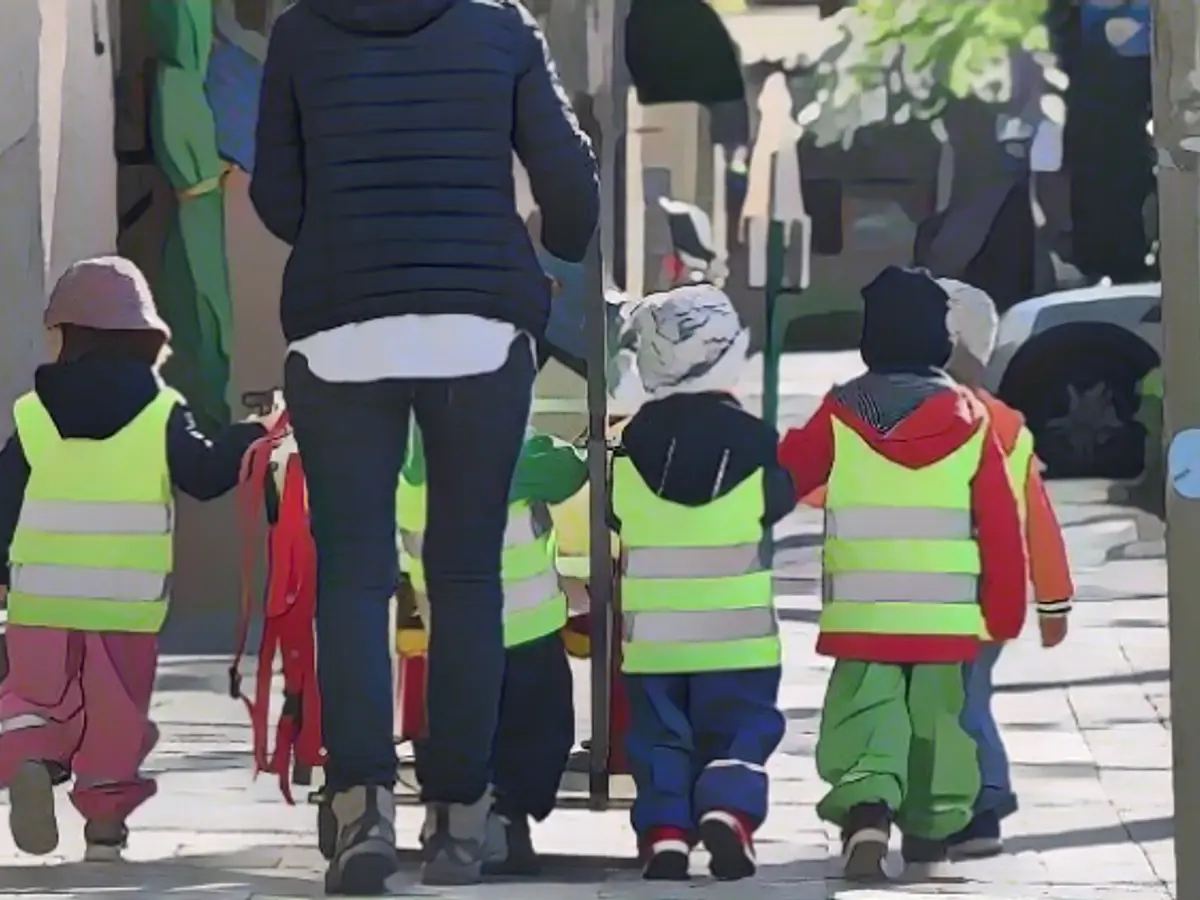Lots of Emilias and Noahs again - but movement in sight
First name fashions develop slowly and are stable - this is how name expert Bielefeld summarizes his latest list. In practice, this means that Germany has many more Emilias, Noahs, Emmas, Sophias, Matteos and Elias. But there are some outliers: the north is a little more modern, two other countries are more traditional - and then there are the big cities.
Every year, hundreds of thousands of parents are spoiled for choice when it comes to choosing a name for their newborn child. Some are creative, others follow the trends. In 2023, many have once again opted for the first names Emilia and Noah - the two names top the list of the most popular first names compiled by name expert Knud Bielefeld. "Just like last year. Nothing has changed," said the amateur name researcher. Emma and Sophia follow in second place for girls and Matteo and Elias for boys.
The fact that Emilia and Noah once again top the lists is not at all unusual. "It's quite typical that such first name fashions develop very slowly, that hardly anything really changes over decades." It could also happen that Noah and Emilia remain number one in the coming years. The two names have risen relatively evenly and cautiously in the hit list and have not skyrocketed like the name Matteo recently.
At the same time, however, Bielefeld's statistics also show names that have been on the rise in the past two years and could well be candidates for the top ten in the coming years. "That would be the names Emilio, Fiete, Fritz, Hannes, Leano, Liam, Lino, Lio, Marlon and Theo for the boys and Amalia, Ella, Elli, Hailey, Ida, Lia, Lilly, Lotta, Malia and Rosalie for the girls." He even sees one name as the clear favorite. "If I had to bet right now, I would bet on Leano."
Saxony and Bavaria more traditional
Gender-neutral names that can be used by both girls and boys are also appearing more and more frequently in the lists. This trend has been around for some time in the USA. Examples of these unisex names include Ashley, Quinn and Taylor. "That's actually not such a rare boys' name in Germany. It has become increasingly popular. Thanks to the hype surrounding Taylor Swift, who is a singer, it is now also popular as a girl's name."

In most federal states, the lists of the top ten first names are similar. As a rule, Emilia, Emma, Sophia and Hannah as well as Noah, Matteo and Emil are in the top five places. In federal states with many large cities such as North Rhine-Westphalia or city states such as Bremen and Berlin, the name Mohammed even makes it into the top ten, because a comparatively large number of families with a migration background live there.
According to Bielefeld's calculations, half of the children born in Germany have one of the 60 most popular girls' or boys' names. There are always noticeable deviations in Bavaria and Saxony. "In Saxony, these retro names are very popular - something like Karl and Gerda, which is not so familiar elsewhere." Bavaria also has a special naming landscape that is relatively conservative. "Names like Thomas, Michael or Sabine still do relatively well there, which no longer work at all in other countries." Noah is not even in the top ten there. Instead, Lukas, Felix and Maximilian are at the top.
More modern north sets trends
In contrast, the federal states in the north are much more modern, Bielefeld continued. "The further north, the more modern. First name trends are more likely to be shaped in northern Germany than in southern Germany." For example, the name Fiete has long played a role in the statistics of Schleswig-Holstein and Mecklenburg-Western Pomerania. "And he's already conquering Germany with a vengeance. That's another candidate that could soon be in the top 10 everywhere."
When compiling the rankings, Bielefeld also noticed an unusual name - the maiden name Evanna. "It's a name I've never had in my database before and now I have it several times." The Ahrensburg native assumes that this could have something to do with the Irish actress Evanna Lynch, who played the role of Luna Lovegood in the Harry Potter films and published a book in 2021.
For the nationwide analysis, Bielefeld and his small team drew on first name data from 412 cities. Almost two thirds of the data came from registry offices and the rest from baby galleries at maternity clinics. According to Bielefeld, it has recorded around 280,000 birth registrations. This corresponds to around 40 percent of babies born in Germany. According to the Federal Statistical Office, 738,800 children were born in 2022. More recent figures were not yet available.
The Society for the German Language publishes similar first name statistics with, according to its own information, around 90 percent of all data from the registry offices - but later than Knud Bielefeld.
Read also:
- Snow chaos further restricts Bavaria
- Extreme weather year: of masses of water and hurricanes
- "Zoltan" sweeps across the country - disruptions to rail traffic
- "Zoltan" brings masses of water, rail chaos and suspected tornadoes
- Despite the prevalence of Emilias and Noahs, name expert Bielefeld highlights that there are some outliers, with the north being a bit more modern in terms of first name trends.
- In the northern states like Schleswig-Holstein and Mecklenburg-Western Pomerania, the name Fiete has already gained popularity, making it a potential candidate to break into the top 10 in other regions.
- International trends often influence first name choices, with gender-neutral names like Ashley, Quinn, and Taylor gaining popularity in Germany due to their popularity in the USA.
- Name expert Bielefeld discovered an unusual name in his database, Evanna, which he attributes to the Irish actress Evanna Lynch's influence in Germany.
- The statistics show that some countries are more traditional in their naming practices, with Bavaria favoring names like Thomas, Michael, and Sabine and avoiding popular names like Noah.
Source: www.ntv.de






